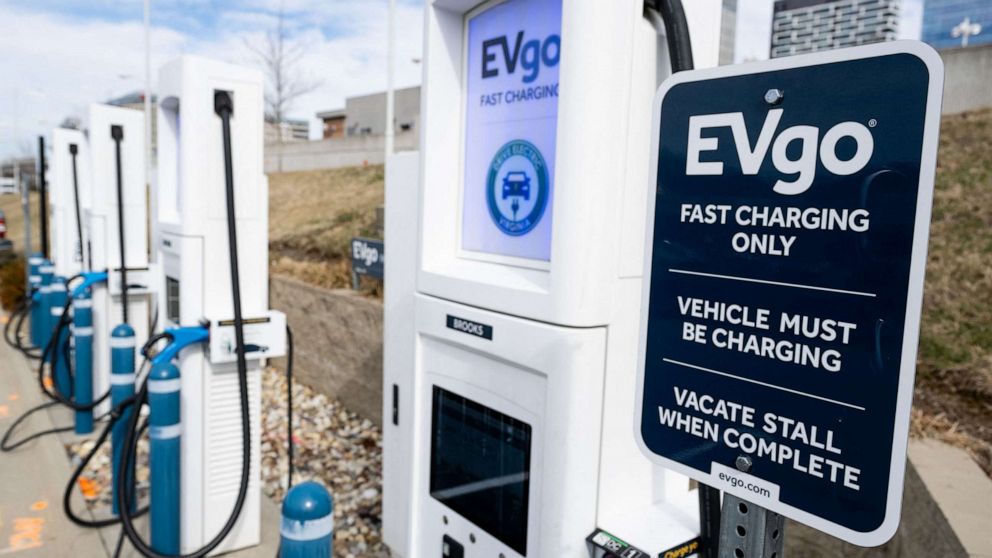Key Innovations in the EV Sector You’ll Find in Today’s Buy EV Charging news
Key Innovations in the EV Sector You’ll Find in Today’s Buy EV Charging news
Blog Article
New Developments in EV Charging: How the Industry Is EVolving to Fulfill Demand
As the electric car (EV) market remains to expand, the charging infrastructure is undergoing considerable transformations to deal with the rising demand. Key growths in ultra-fast billing innovations, coupled with clever grid assimilation, are improving the landscape. Technologies in battery modern technology pledge enhanced efficiency and sustainability. Nonetheless, the quest of international billing standards continues to be an essential consider making it possible for seamless customer experiences and prevalent fostering. The ramifications of these advancements elevate vital questions about the future of EV charging and its duty in the broader power community.
Development of Charging Infrastructure
The rapid development of electric lorry (EV) billing infrastructure is a vital element in promoting the prevalent fostering of electrical wheelchair. As federal governments, personal firms, and consumers significantly acknowledge the importance of minimizing carbon exhausts, investments accountable networks have actually risen. This framework development is vital to relieve range anxiety, guaranteeing that EV individuals have practical accessibility to billing terminals.
Considerable innovations in billing station technology and deployment techniques have emerged. Urban areas are seeing an expansion of public charging stations, while rural areas are progressively being incorporated right into the billing network. Collaborations in between vehicle makers and billing companies are coming to be a lot more typical, helping with the facility of thorough networks that boost user experience and access.
In addition, the integration of eco-friendly energy sources right into billing stations is acquiring momentum, advertising sustainability in the EV ecosystem. This change not just supports ecological objectives yet also lines up with the increasing need for green power remedies among customers.
Ultra-Fast Charging Technologies
Ultra-fast billing modern technologies represent a significant jump forward in the EV charging landscape, making it possible for electrical lorries to charge in a fraction of the time compared to typical billing methods. These advancements usually supply power levels surpassing 150 kW, with some systems getting to up to 350 kW or even more, considerably decreasing charging times to as little as 15-30 minutes for a substantial fee.
Secret allowing technologies include advancements in battery chemistry, power electronics, and thermal administration systems. High-capacity batteries with enhanced thermal security allow for faster billing without overheating. EV Charging news. In addition, advancements in charging framework, such as liquid-cooled wires and modular charging terminals, facilitate efficient power transfer, boosting the general user experience
Major automotive makers and innovation firms are actively investing in ultra-fast billing networks, identifying the critical role they play in getting over range anxiousness and increasing the fostering of electric automobiles. As these modern technologies become a lot more commonly readily available, the EV market is anticipated to witness significant development, making electrical wheelchair an extra eye-catching option for consumers. On the whole, ultra-fast billing innovations are critical in forming the future of sustainable transport, leading the means for a much more efficient and considerable billing community.
Smart Grid Integration

Through demand action approaches, wise grid systems can change charging timetables based upon grid problems and electricity prices. During durations of high demand, billing can be delayed to off-peak hours, resulting in reduced prices for customers and lowered strain on the grid. Furthermore, vehicle-to-grid (V2G) technologies allow EVs to release power back right into the grid, boosting and giving supplementary solutions grid stability.
Assimilation with eco-friendly energy resources additionally boosts the sustainability of EV charging. By aligning billing tasks with periods of high solar or wind generation, wise grids promote a greener charging framework. Ultimately, clever grid combination not only supports the growing need for EVs but also adds to a more sustainable and resistant energy future, placing the sector for long-term success.
Battery Developments
In the middle of the quick development of electric automobiles (EVs), battery advancements stand at the center, driving improvements in efficiency, sustainability, and efficiency. As the need for EVs surges, researchers and manufacturers are concentrating on boosting battery innovations to address obstacles such as range anxiousness and billing times.
Lithium-ion batteries remain one of the most extensively utilized technology, yet new materials and chemistries are arising to enhance energy thickness and durability. Solid-state batteries, for example, promise greater power storage space ability and boosted security by replacing fluid electrolytes with solid ones. This shift could significantly lower the threat of fire and raise the life expectancy of batteries.
Additionally, innovations in battery reusing procedures are important for sustainability. Firms are establishing techniques to recoup beneficial materials like lithium, cobalt, and nickel from used batteries, promoting a round economy and minimizing ecological influence.

International Charging Requirements

Initiatives are underway to establish global billing criteria that assist in compatibility among numerous EV models and charging stations. Organizations such as the International Electrotechnical Payment (IEC) and the Society of Automotive Engineers (SAE) are working collaboratively with vehicle suppliers and energy providers to produce extensive guidelines. EV Charging news. These standards purpose to simplify Related Site the billing procedure, reduce the need for numerous adapters, and enhance individual experience
Moreover, standardization can considerably bolster the growth of the billing network, as it urges financial investment by making infrastructure growth much more predictable and efficient. As the EV market develops, a unified technique to billing standards will be crucial for guaranteeing that consumers can bill their automobiles conveniently and dependably, consequently supporting the wider transition to sustainable transportation.
Conclusion
The electric car billing market is undertaking significant transformation to deal with the rising need for lasting published here transportation. Innovations in billing facilities, ultra-fast innovations, smart grid assimilation, and innovative battery solutions are pivotal in boosting user experience and functional effectiveness.
Urban locations are seeing a proliferation of public billing terminals, while rural areas are slowly being integrated into the billing network. In addition, advancements in billing facilities, such as liquid-cooled cables and modular billing terminals, help with reliable power transfer, improving the general individual experience.
Generally, ultra-fast charging modern technologies are pivotal in forming the future of sustainable transportation, paving the method for a much more efficient and comprehensive billing community. - EV Charging news
By aligning charging tasks with periods of high solar or her comment is here wind generation, wise grids advertise a greener billing infrastructure.Initiatives are underway to develop worldwide billing criteria that assist in compatibility among numerous EV designs and charging stations.
Report this page